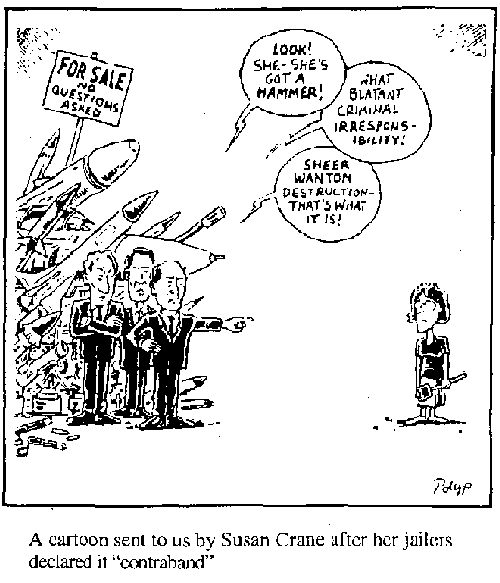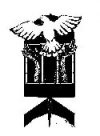



|

|
 |
One day when I was teaching in Ukiah, I was sitting on the school steps talking to one of my students. She had gone across the street to the health department, walked in the unlocked back door, and taken a wallet. Now, confronted with her actions, she was angry at the health department worker. "She shouldn't have left her wallet where I could get it. Now I'm in trouble and it's her fault." As I talked with her, I couldn't get her to feel any compassion for the health department worker. No words seemed to work for me. How do you teach compassion, I wondered. How do we learn compassion?
Here in the prison, the same questions stay with me. The good
church volunteers come in to lead us in scripture study. We read Paul's
letters to the Romans: We are one body in Christ (12:5), don't repay evil
for evil (12:17), love fulfills the law (13:8), love one another (12:10).
Applying these mandates to our immediate daily lives makes for a lively
discussion. But what about the people of Iraq, who are part of the body of
Christ? What about our Muslim brothers and sisters?
 Using Gospel values,
is there any justification for the 1991 bombing of their country,
destroying bridges, dams, electrical, water, sewage and communications
systems, grain silos, hospitals, factories, mosques and schools, killing
over 150,000 people? Or for the sanctions which have continued now for 10
years and have caused the death of 1.2-1.5 million people? During
scripture study, these concerns are met with silence, or, just like my
student, the good volunteers blame the Iraqi people.
Using Gospel values,
is there any justification for the 1991 bombing of their country,
destroying bridges, dams, electrical, water, sewage and communications
systems, grain silos, hospitals, factories, mosques and schools, killing
over 150,000 people? Or for the sanctions which have continued now for 10
years and have caused the death of 1.2-1.5 million people? During
scripture study, these concerns are met with silence, or, just like my
student, the good volunteers blame the Iraqi people.
The gospel message of love of enemies seems impractical through the lens of our culture and the demands of our daily lives. Yet it's the only practical solution to the problems that confront us. It's the only way we can live in right relationship to our God, our neighbors and the earth. The weapons that are terrorizing and killing our neighbors need to be disarmed.
And here in this warehouse, I'm journeying with the most marginalized people of our society: the throwaway people whose lives count for nothing. Reading the newspaper, anyone can think that only violent people are in prison, but from what I see, looking around me, it's poor people who are here. People too poor to have a good defense, too poor to afford a rehab, to get an education, a good job, a stable home, medical care... And regardless of what any in here might have done, no one has done anything as horrific as our collective warmaking actions.
And for those of us who need help developing compassion, what is there in this warehouse to help us? The rules and regulations which make helping and sharing illegal, the isolation and the attitudes of many of the turnkeys, work against our desire to grow compassion. But at times there's an undercurrent of generosity that can't be subdued, and a kindness of spirit that persists in erupting. Sometimes we are able to stand with each other in suffering, and listen to the cries around us. We're thankful for the volunteers who come, and thankful for the chance to practice compassion. But if we listen to the cries of our far neighbors, I'm sure we'd want to do everything we can to end the sanctions and disarm our weapons.
[Susan Crane is serving a 27-month sentence for disarming a depleted-uranium-firing A-10 anti-tank aircraft as part of the Plowshares vs. DU disarmament action, December, 1999.]
